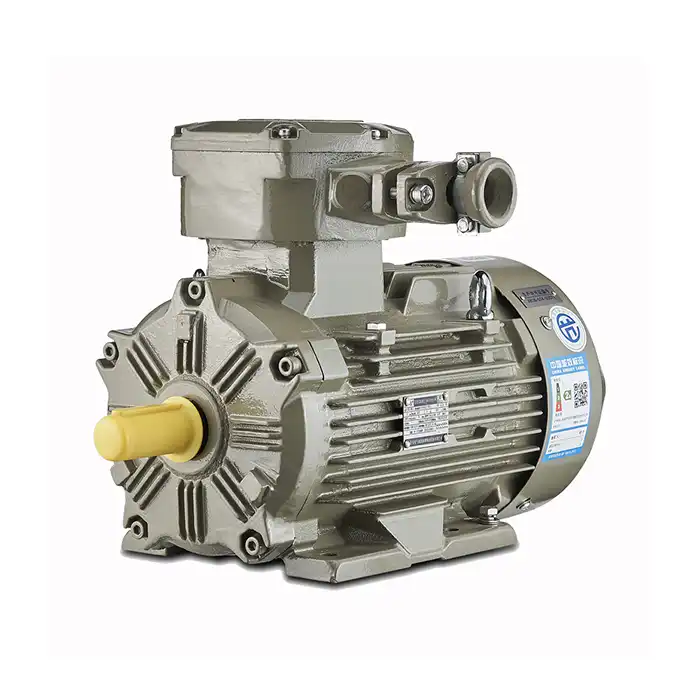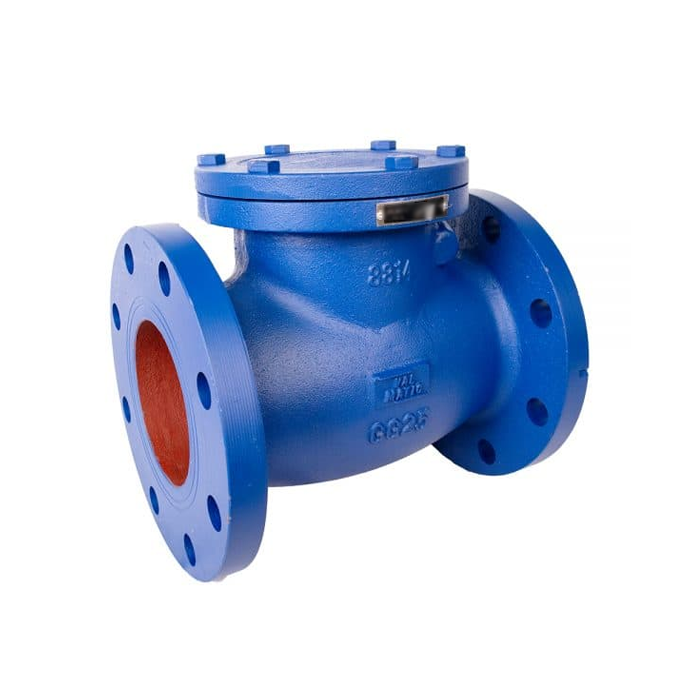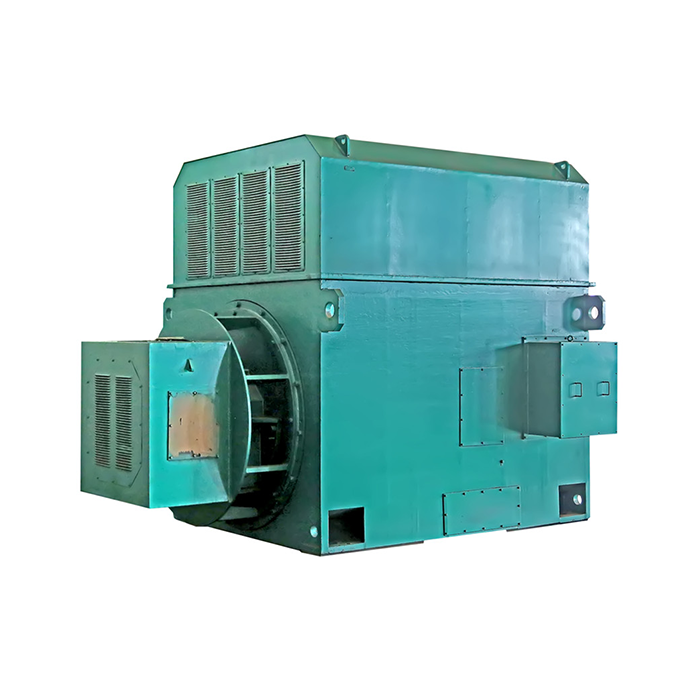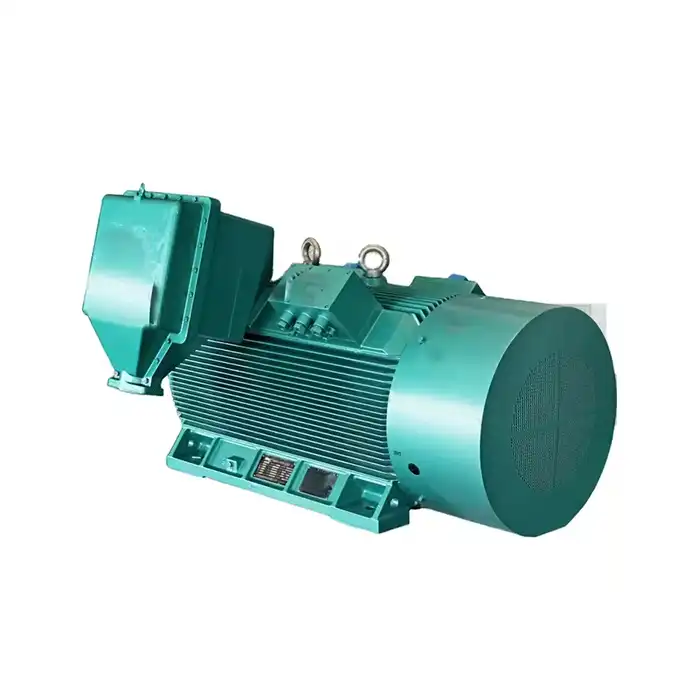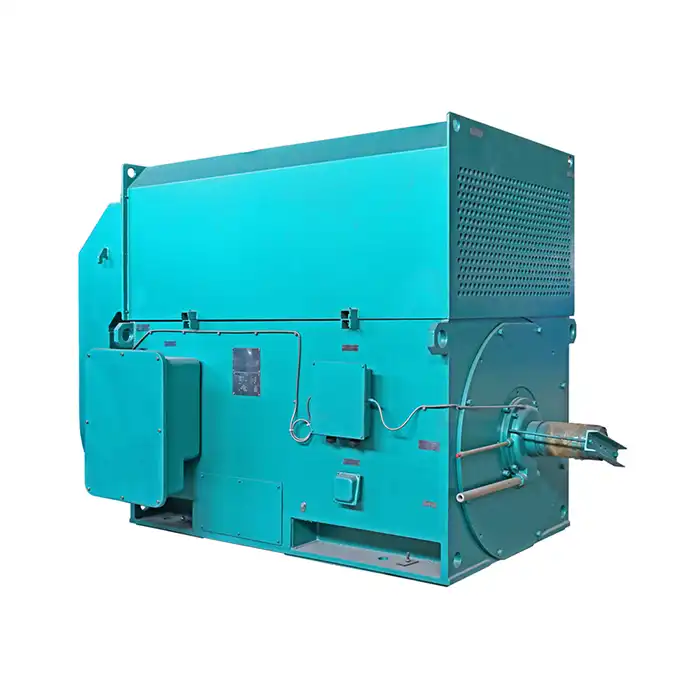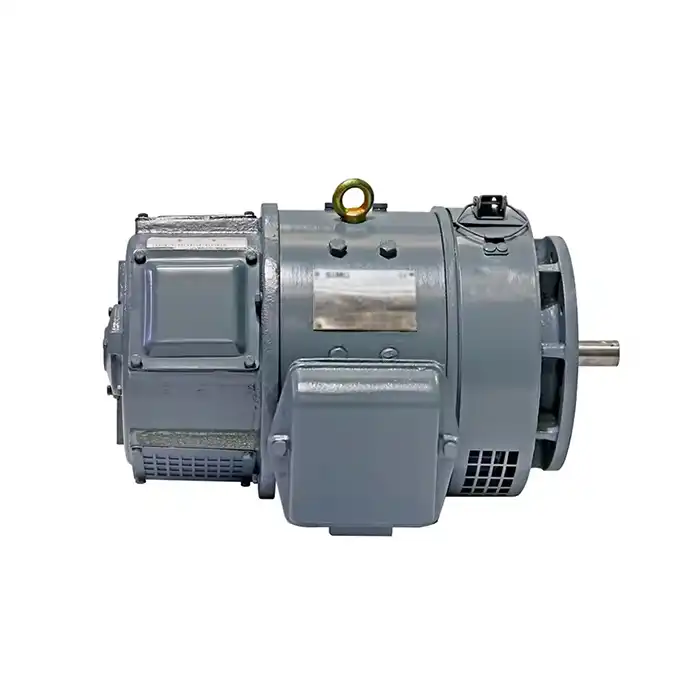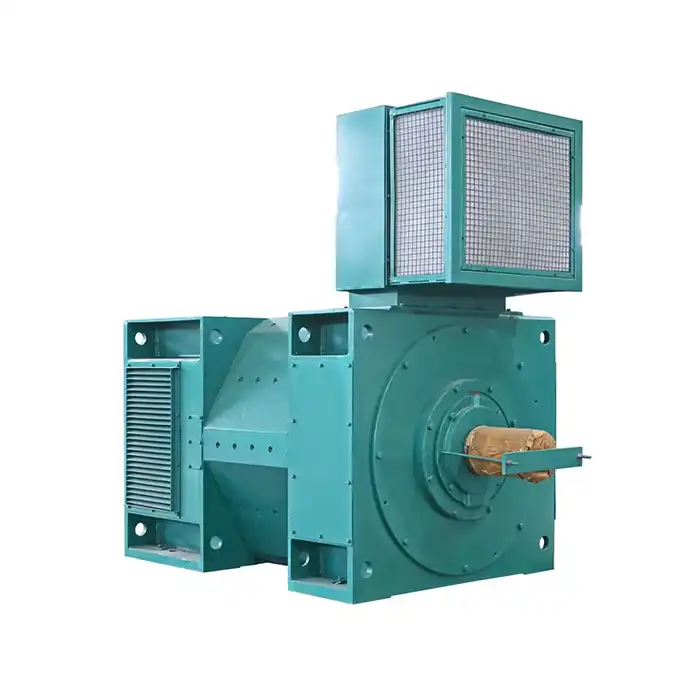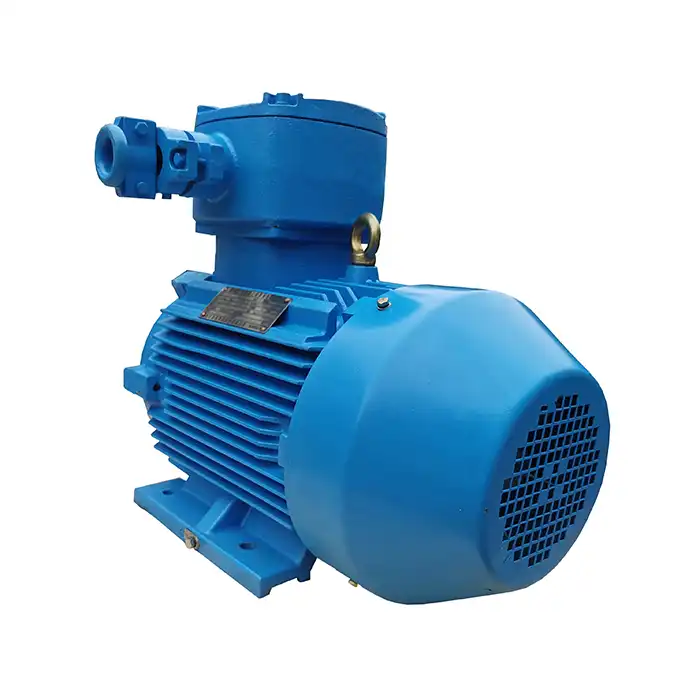What factors influence the lifespan of an inverter duty induction motor?
Inverter duty induction motors are essential components in various industrial applications, providing precise speed control and energy efficiency. Understanding the factors that affect their lifespan is crucial for maximizing performance and minimizing downtime. In this article, we'll explore the key elements that influence the longevity of inverter duty induction motors and provide insights on how to extend their operational life.
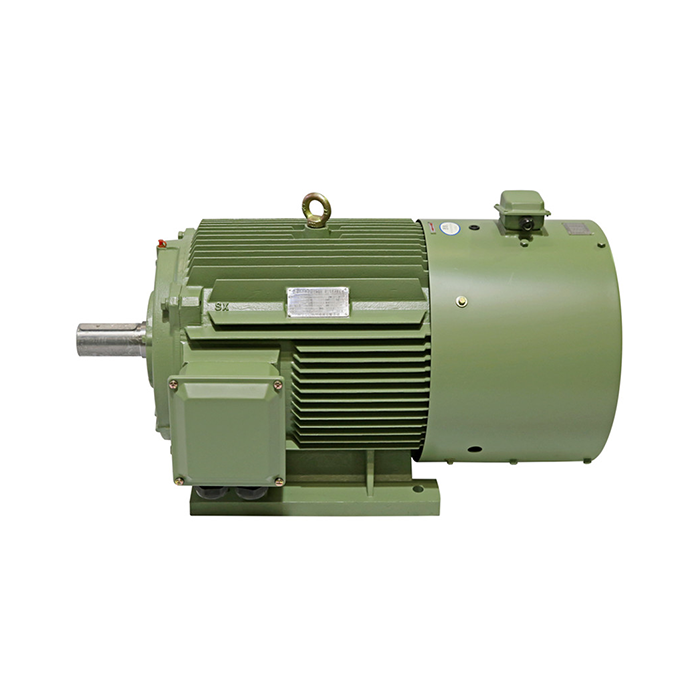
Series:YVFE3
Frequency conversion range:30hz~50hz,5hz~70hz,5hz~100hz
Power range:0.75-1000kW
Protection level:IP55
Application:are suitable for driving various mechanical equipment that require continuous and frequent forward and reverse rotation, such as steel rolling, lifting, transportation, machine tools, printing and dyeing, papermaking, chemicals, textiles, pharmaceuticals, etc., and can be used with various domestic and foreign variable frequency power supplies.
Advantage:high efficiency, wide speed range, high precision, stable operation, and easy operation and maintenance.
Certificate:installation dimensions comply with International Electrotechnical Commission (IEC) standards.
Others: SKF, NSK, FAG bearings can be replaced according to customer requirements.
Thermal Management: Key to Extended Motor Life
One of the most critical factors affecting the lifespan of an inverter duty induction motor is thermal management. Proper heat dissipation is essential for maintaining optimal performance and preventing premature failure.
Importance of Cooling Systems
Cooling systems are crucial for managing the heat produced by inverter duty induction motors, particularly when they operate at variable speeds and under fluctuating loads. The motor's continuous adjustment to changing conditions can generate significant amounts of heat, which, if not properly dissipated, can lead to overheating and reduced efficiency. By implementing effective cooling mechanisms, such as fans or liquid cooling systems, the motor can maintain an optimal operating temperature, preventing overheating and ensuring consistent, reliable performance. This helps to extend the motor's lifespan and prevent potential failures caused by excessive heat.
Insulation Class and Temperature Rise
The insulation class of an inverter duty induction motor plays a key role in determining its ability to endure high temperatures without damage. Higher insulation classes, like Class F or H, are designed to tolerate greater temperature rises without degrading, which is crucial for motors operating in high-heat environments. Selecting the right insulation class based on the specific demands of the application ensures that the motor can handle the thermal stress without compromising performance. Proper insulation prevents premature failure and reduces the need for frequent maintenance, ultimately enhancing the motor's reliability and longevity.
Ambient Temperature Considerations
Ambient temperature is a critical factor in the thermal performance of inverter duty induction motors. High environmental temperatures can impede the motor's ability to effectively dissipate heat, leading to higher operating temperatures and potential damage. When selecting and installing these motors, it’s essential to consider the ambient conditions—such as room temperature, airflow, and humidity—where the motor will operate. Ensuring that the motor's cooling system is adequate for the environment, and taking measures like providing ventilation or installing external cooling units, can help maintain the motor’s performance and lifespan under varying temperature conditions.
Impact of Duty Cycle on Motor Longevity
The duty cycle of an inverter duty induction motor refers to the operating pattern and load variations it experiences during its service life. Understanding and managing the duty cycle is crucial for optimizing motor performance and extending its lifespan.
Continuous vs. Intermittent Operation
Motors designed for continuous operation have different requirements compared to those intended for intermittent use. Continuous operation can lead to increased heat generation and stress on motor components. Selecting a motor with the appropriate duty rating for the application helps ensure optimal performance and longevity.
Load Variations and Their Effects
Inverter duty induction motors often experience varying loads throughout their operation. Frequent starts and stops, as well as sudden load changes, can stress motor components and reduce their lifespan. Implementing soft start mechanisms and proper load management strategies can help mitigate these effects.
Speed Range Considerations
The speed range at which an inverter duty induction motor operates can impact its lifespan. Motors designed for wide speed ranges may require additional cooling or specialized construction to handle the diverse operating conditions. Matching the motor's speed range capabilities to the application requirements is essential for optimal performance and longevity.
Bearing Selection and Lubrication: Often Overlooked Factors
Bearings are critical components in inverter duty induction motors, and their proper selection and maintenance can significantly influence the motor's lifespan.
Importance of Proper Bearing Selection
Selecting the appropriate bearings for an inverter duty induction motor is essential for ensuring long-term reliability and efficient operation. Bearings must be chosen based on several factors, including load capacity, speed range, and the specific operating environment. For motors that operate under variable speed conditions, it is crucial to select high-quality bearings designed to handle these fluctuations. Bearings that can accommodate a wide range of speeds and loads will reduce the risk of premature failure, enhancing the motor's overall lifespan and ensuring smoother operation throughout its service life.
Lubrication Practices and Their Impact
Proper lubrication is vital for maintaining bearing health and preventing unnecessary wear. Bearings in inverter duty motors experience continuous movement, and without adequate lubrication, friction can cause significant damage, leading to premature bearing failure. By adhering to a regular lubrication schedule and using the right type and amount of lubricant, the bearing's performance is optimized. Correct lubrication reduces friction and heat, extending the motor's lifespan by minimizing wear and tear on both the bearings and the motor itself. Regular maintenance of lubrication also ensures that the motor operates at its peak efficiency.
Bearing Current Mitigation
Inverter duty induction motors, particularly those driven by variable frequency drives (VFDs), can experience bearing currents due to high-frequency switching. These currents can flow through the motor shaft and into the bearings, leading to electrical erosion and premature failure. To mitigate this risk, it is essential to incorporate bearing current protection measures, such as insulated bearings or shaft grounding systems. These techniques help dissipate the harmful currents before they reach the bearings, significantly reducing the risk of damage and extending the motor's operational life. Proper bearing current mitigation ensures a longer, more reliable performance, especially in demanding variable-speed applications.
Conclusion
The lifespan of an inverter duty induction motor is influenced by various factors, including thermal management, duty cycle, and bearing selection. By considering these elements and implementing appropriate strategies, industries can optimize motor performance and extend operational life. Regular maintenance, proper installation, and selecting the right motor for the application are key to maximizing the longevity of inverter duty induction motors.
Extend Your Motor's Lifespan with XCMOTOR's Expert Solutions
At XCMOTOR, we understand the importance of maximizing the lifespan of your inverter duty induction motors. As a leading inverter duty induction motor manufacturer, our team of experts specializes in providing high-quality, energy-efficient power equipment solutions tailored to your specific needs. With our advanced motor designs and comprehensive support, you can ensure optimal performance and longevity for your industrial applications. Don't let motor issues hold you back – contact XCMOTOR today at xcmotors@163.com and discover how our inverter duty induction motor solutions can drive your success.
References
- Johnson, A. (2022). Thermal Management Strategies for Inverter Duty Induction Motors. Industrial Motor Journal, 45(3), 112-125.
- Smith, B. & Lee, C. (2021). The Impact of Duty Cycle on Inverter-Fed Motor Lifespan. IEEE Transactions on Industrial Electronics, 68(9), 8234-8245.
- Rodriguez, M. et al. (2023). Bearing Selection and Maintenance for Variable Speed Motor Applications. Journal of Mechanical Engineering, 56(2), 201-215.
- Chen, Y. (2022). Insulation Systems for Inverter-Driven Motors: A Comprehensive Review. Electrical Insulation Magazine, IEEE, 38(4), 20-31.
- Thompson, R. & Garcia, L. (2021). Mitigating Bearing Currents in Inverter-Fed Motors. Power Electronics and Applications Conference, 1245-1252.
- Wilson, K. (2023). Optimizing Cooling Systems for Variable Speed Induction Motors. Cooling Technology Institute Journal, 44(1), 78-89.



